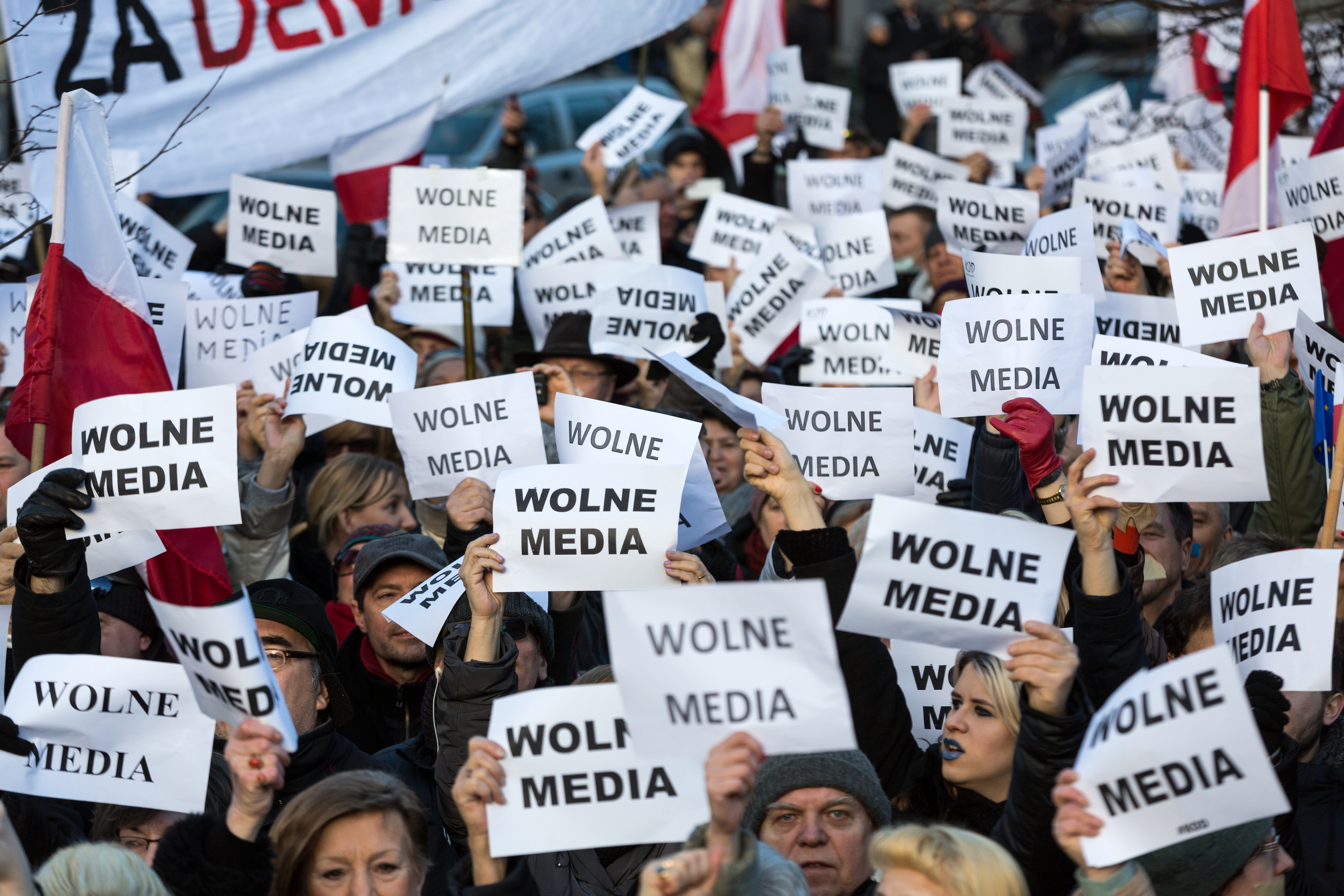Public media in Poland struggles for a reset
26th February 2024
All 17 public radio stations have now been liquidated, while TVP has been accused of political bias towards the new government, as public media reforms in Poland continue.

IN BRIEF:
- Poland’s new government continues to implement its programme of reforming the country’s public media, following years of political control under the previous administration.
- All 17 publicly-owned radio stations have now been put into liquidation following a legal battle.
- However, TVP has been accused of now being biased towards the new government.
- The new news editor has rebuffed such criticism, pointing out where it continues to hold the government to account.
- There are also plans to reduce the size of TVP, with warnings the broadcaster’s budget could shrink by a third.
IN FULL:
A wholesale, but contentious, cleanout is underway at public broadcasters in Poland, brought about by the new centre-left government of prime minister Donald Tusk, who was elected last December, ending the eight-year rule of the far-right Law and Justice Party (PiS).
Poland has two public broadcasters: TVP, which operates national, regional and thematic television networks, and Radio Poland, which operates five national networks and many regional stations. However, private media have been better trusted than public media in recent years, particularly in the wake of a crackdown by the PiS that saw public media “acting like government cheerleaders.”
Read more: New management at TVP as former gov’t leaders stage sit-in
Within a week of being sworn in, Tusk’s pro-European Union coalition set about gutting the top management of public television, making good on a campaign promise to reform the broadcaster and restore impartiality at the organisation.
In the week before Christmas, culture minister Bartlomiej Sienkiewicz took the state 24-hour news channel, TVP Info, off air and sacked the boards of the public media. He then put the companies into liquidation, taking advantage of a legal loophole which allowed the networks to continue operating while a restructure took place.
New management boards were then appointed, prompting former prime minister Mateusz Morawiecki to accuse the new government of violating its “supposed care for the rule of law … at every step.”
Historic politicisation of TVP
Soon after taking power in 2015, PiS moved to bring public television and radio, which are meant to be pluralistic and neutral, under their control. State media was increasingly accused of promoting the party’s policies and launched vicious, personal attacks on opposition figures, with Tusk a particular target. In late 2022, Tusk tried to sue the channel for broadcasting his image with a red glow and what appeared to be a gun sight trained on his chest.
“We need to bring back a calm demeanour to the news and shed the sensationalism it’s had while it was being used for propaganda. We want to present the news of the day as a photograph, not as a painting.” – Grzegorz Sajor, TVP Head of News
On TVP, correspondents and anchors would regularly parrot government talking points and warn about the “dangers” of the political opposition, while scandals involving the government were often ignored. Former journalists spoke of pressure being piled on editors and presenters, as the news outlets instead resembled a PR agency.
An October report by the European Centre for Press and Media Freedom found “the public media have been fully converted into a propaganda arm of the ruling PiS and acts not only to promote the interests of the party but also to attack and denigrate its critics.”
Listen toour podcast
Uncovering and exploring the biggest
issues facing public media
The broadcasters became a key focus of Tusk in what became a tightly-contested – and oftentimes contentious – election campaign, with promises to overturn years of PiS reforms. Over eight years, Poland had dropped from 18th to 57th on the World Press Freedom Index.
Tusk implements wholesale reforms
After the TVP board was sacked, PiS lawmakers staged a sit-in protest at the broadcaster’s headquarters. “There is no media pluralism or strong anti-government media, and in Poland these are public media,” the PiS leader, Jaroslaw Kaczynski, said.
The sudden concern for freedom of speech prompted wry amusement, but did spurn questions about the legality of Tusk’s moves, including warnings from media groups that the new government risked simply creating its own politicised public television network, replacing the old one.
Last week, TVP was accused of political bias after it published a promotional video in which all politicians featured were aligned with the new government.
The new head of news, Grzegorz Sajor, defended their news, telling NPR this month the swift changes were necessary. “My job is to bring back normalcy, because the last eight years were simply not normal.
“We need to bring back a calm demeanour to the news and shed the sensationalism it’s had while it was being used for propaganda. We want to present the news of the day as a photograph, not as a painting.”
He also said the new station was also broadcasting news unfavourable to Tusk’s new government, pointing to how it changed its schedule to broadcast a live vote of no confidence in the new culture minister for the changes that were made to TVP. That vote failed in parliament.
Meanwhile, the changes continue at breakneck pace. All 17 publicly owned radio stations are now officially undergoing liquidation as well, following a legal battle.
But there continues to be some resistance to these changes, and not just from opposition politicians. Several legal experts have questioned whether the moves have been carried out legally.
Still, this week the liquidators of TVP announced that several services will be merged as part of efforts to cut costs and reduce layers of management, with the culture minister saying that public broadcasting cannot count on operating with the same budget it had under the previous government, with estimates that it could shrink by up to a third.
Related Posts
20th December 2023
New management at TVP as former gov’t leaders stage sit-in
Politicians of the Poland’s former…


